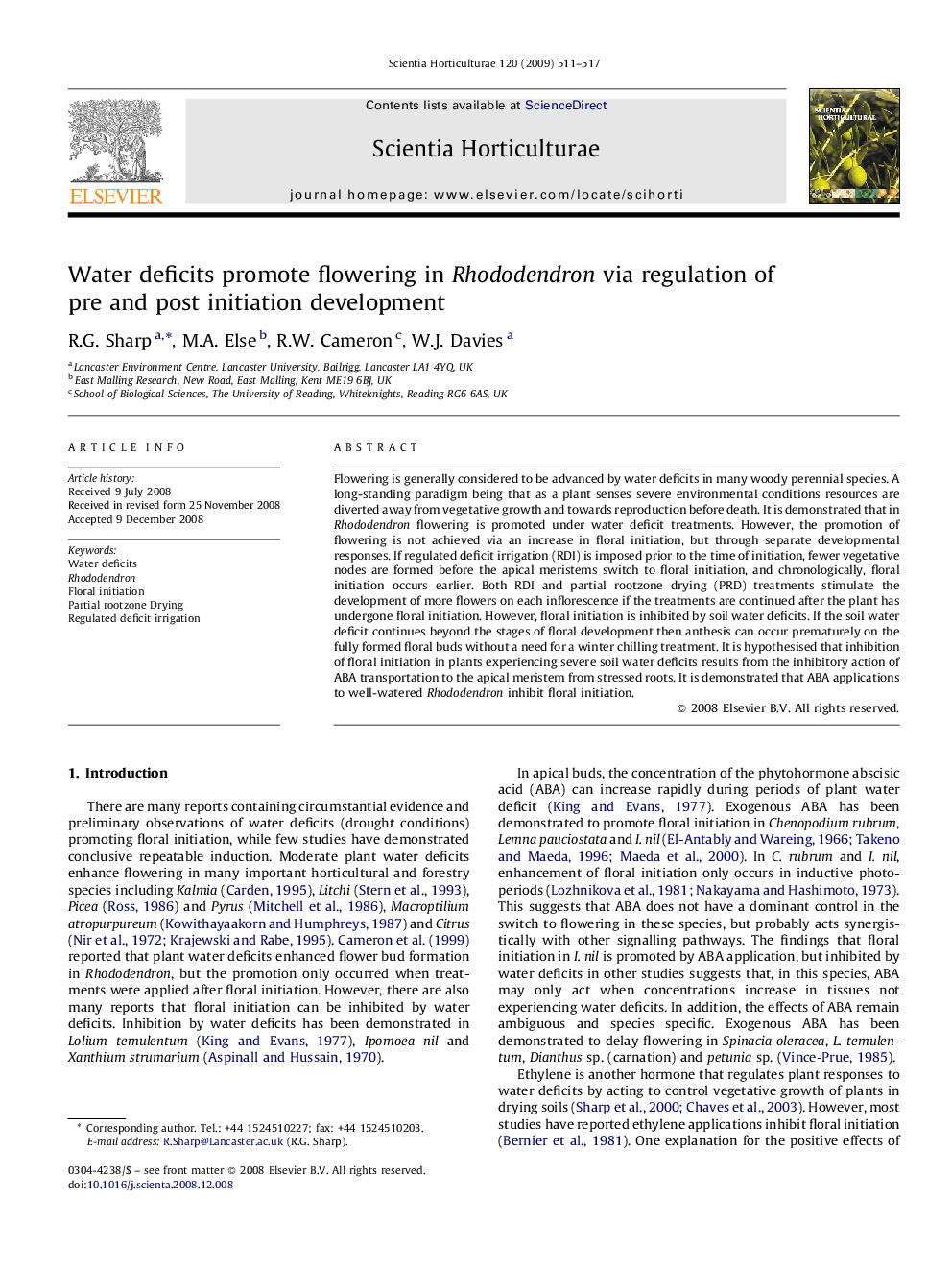| Article ID | Journal | Published Year | Pages | File Type |
|---|---|---|---|---|
| 4568473 | Scientia Horticulturae | 2009 | 7 Pages |
Flowering is generally considered to be advanced by water deficits in many woody perennial species. A long-standing paradigm being that as a plant senses severe environmental conditions resources are diverted away from vegetative growth and towards reproduction before death. It is demonstrated that in Rhododendron flowering is promoted under water deficit treatments. However, the promotion of flowering is not achieved via an increase in floral initiation, but through separate developmental responses. If regulated deficit irrigation (RDI) is imposed prior to the time of initiation, fewer vegetative nodes are formed before the apical meristems switch to floral initiation, and chronologically, floral initiation occurs earlier. Both RDI and partial rootzone drying (PRD) treatments stimulate the development of more flowers on each inflorescence if the treatments are continued after the plant has undergone floral initiation. However, floral initiation is inhibited by soil water deficits. If the soil water deficit continues beyond the stages of floral development then anthesis can occur prematurely on the fully formed floral buds without a need for a winter chilling treatment. It is hypothesised that inhibition of floral initiation in plants experiencing severe soil water deficits results from the inhibitory action of ABA transportation to the apical meristem from stressed roots. It is demonstrated that ABA applications to well-watered Rhododendron inhibit floral initiation.
